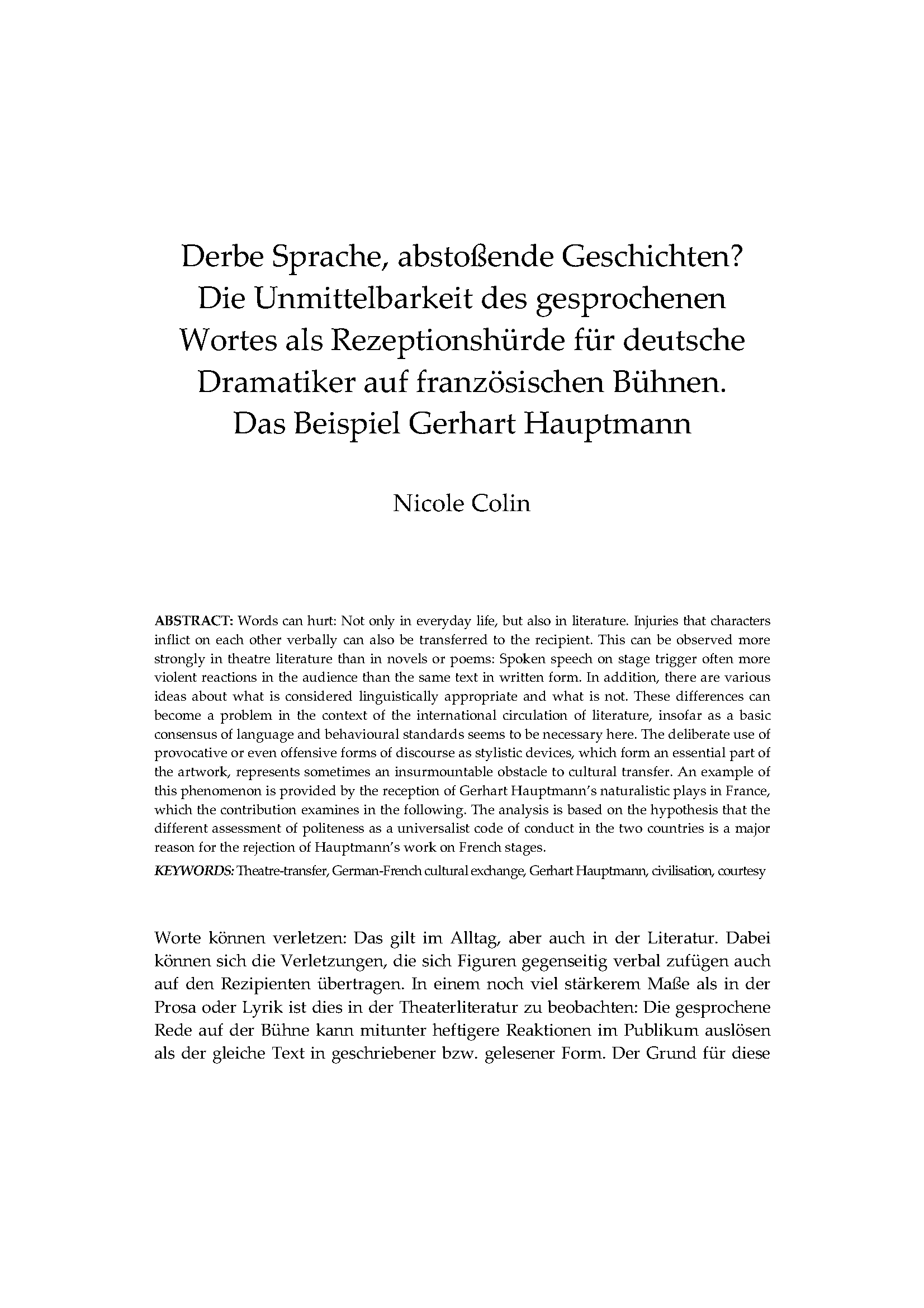Derbe Sprache, abstoßende Geschichten? Die Unmittelbarkeit des gesprochenen Wortes als Rezeptionshürde für deutsche Dramatiker auf französischen Bühnen. Das Beispiel Gerhart Hauptmann
DOI:
https://doi.org/10.62229/bbzg5-23/1Keywords:
Theatre-transfer, German-French cultural exchange, Gerhart Hauptmann, civilisation, courtesyAbstract
Words can hurt: Not only in everyday life, but also in literature. Injuries that characters inflict on each other verbally can also be transferred to the recipient. This can be observed more strongly in theatre literature than in novels or poems: Spoken speech on stage trigger often more violent reactions in the audience than the same text in written form. In addition, there are various ideas about what is considered linguistically appropriate and what is not. These differences can
become a problem in the context of the international circulation of literature, insofar as a basic consensus of language and behavioural standards seems to be necessary here. The deliberate use of provocative or even offensive forms of discourse as stylistic devices, which form an essential part of the artwork, represents sometimes an insurmountable obstacle to cultural transfer. An example of this phenomenon is provided by the reception of Gerhart Hauptmann’s naturalistic plays in France, which the contribution examines in the following. The analysis is based on the hypothesis that the different assessment of politeness as a universalist code of conduct in the two countries is a major reason for the rejection of Hauptmann’s work on French stages.





